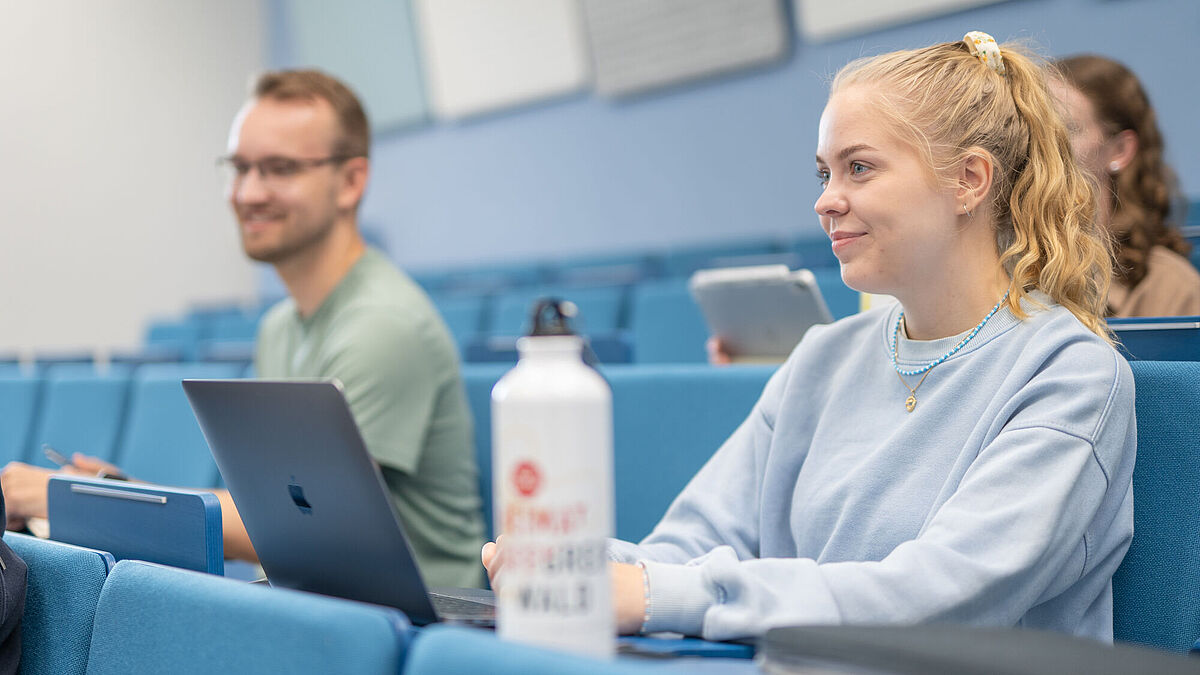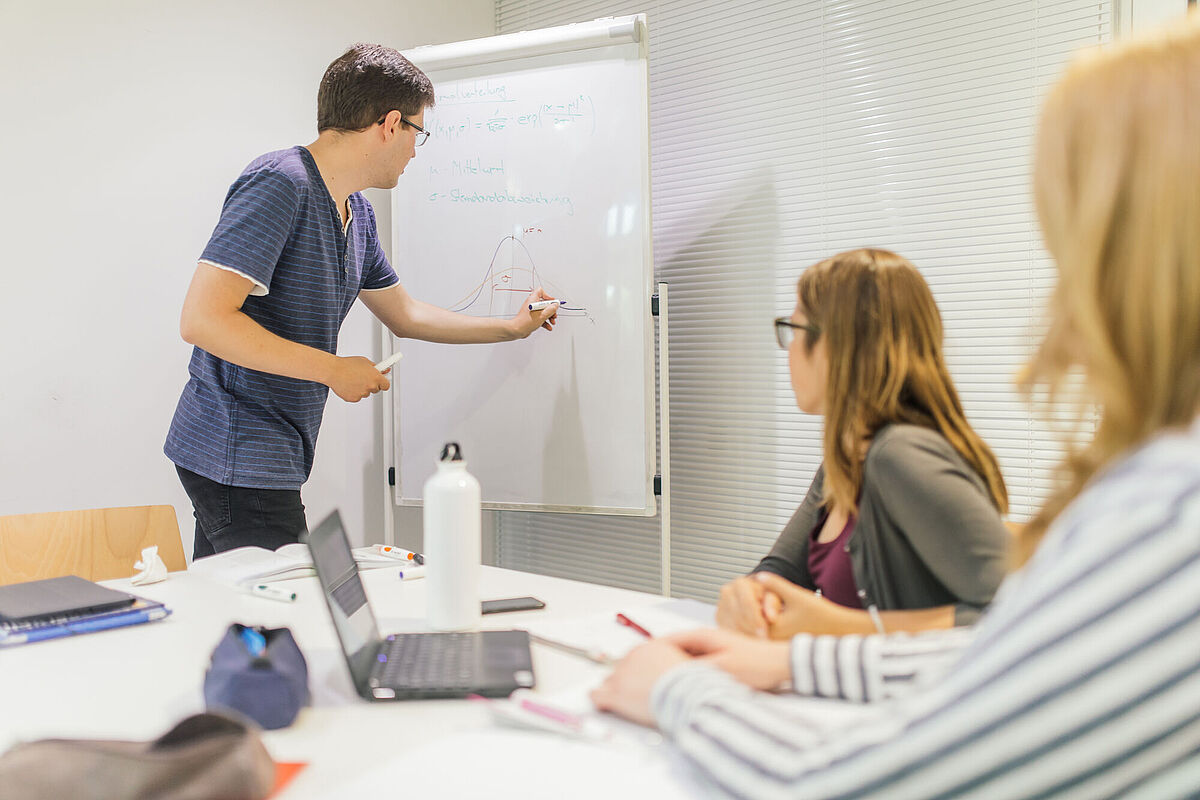Teaching Mathematics
Structure of the study programme
Course content
The focus of the sub-degree study programme “Mathematics for Secondary Schools” lies on the meaningful combination of subject-specific and didactic content.
In the first semesters, students initially study the mathematical basics of linear algebra and analysis, accompanied by courses on mathematical software. The courses in the higher semesters serve to deepen the knowledge regarding the needs of the teaching profession in the modules Algebra and Number Theory, Stochastics, Statistics and Geometry. The compulsory elective module in the 9th semester is also suitable for setting an individual focus. Depending on availability, students can choose between Function Theory, Nonlinear Optimization, Computer Graphics, Game Theory, Discrete Optimization, Graph Theory, Financial Mathematics, Numerics I, Numerics Basic Practical Course and Mathematical Logic.
In addition to the subject-specific content, students acquire practical skills in the mathematics didactics courses in order to be able to plan and conduct their own lessons in a meaningful way. We also offer students the opportunity to gain their first teaching experience and reflect on it in a protected environment.
Basic module in mathematics didactics
The basic module serves as an introduction to mathematics didactics. Students acquire the necessary skills for the selection, arrangement and didactic-methodical preparation of learning content and become familiar with the central concepts and theories of mathematics didactics.
Practical module in mathematics didactics
In the practical module, students apply their knowledge of subject didactics and subject science in practice for the first time. In addition, students have the opportunity to analyse and reflect on didactically guided teaching situations together with their fellow students. The practical module offers space for an open exchange of experiences and exciting discourse.
Specialisation module in mathematics didactics
Finally, students attend two seminars in the specialisation module in which they apply their previous experience and didactic knowledge in a practice-oriented and topic-led manner. Seminars are offered on subject didactics and digital media in maths lessons.
Short description
Standard period of study:
10 semesters
Form of study:
Full-time study programme
Subject type:
Teacher training programme at secondary schools - consisting of educational sciences and two subjects
Admission restriction:
No admission restrictions, without numerus clausus
Main language of instruction:
German
Field of study:
Teacher training programme, Mathematics, Natural Sciences
Faculty:
Faculty of Mathematics and Natural Sciences
Start of degree programme:
Winter semester
Mathematics learning office
Since the winter term 2023/24, mathematics students have been able to use the Lernl@b to study and work with fellow students.
In a pleasant atmosphere, students have the opportunity to work together on exercise sheets, review lecture content, plan their own lessons and even try them out in the Lernl@b mathematics learning office. The wide range of specialised and didactic literature, technical devices and various individual and group workstations offer students an ideal learning environment.
Students can turn to the student support team with their subject-related and didactic questions.
Good reasons to study Mathematics at Greifswald University
Excellent supervisory relationship
Close contact with fellow students and lecturers
Ideal learning environment
Opportunities for participation in and around the degree programme
Support programmes
Numerous opportunities for recreation and balance
Before your studies
Pre-course in mathematics: start studying maths together.
Every year, the Institute of Mathematics provides all new maths students the opportunity to master the transition from school to university together before the start of the semester. For a fortnight, the new maths students can get used to the unfamiliar premises, forms of teaching and university mathematics in the preliminary course.
They are guided through lectures and exercises by various lecturers. The content of the school lessons is repeated, deepened, and supplemented with new knowledge.
In addition to the many subject-related impressions, the preliminary course also offers an ideal opportunity to get to know fellow students and the student council. In this way, the start of your studies should go smoothly.



